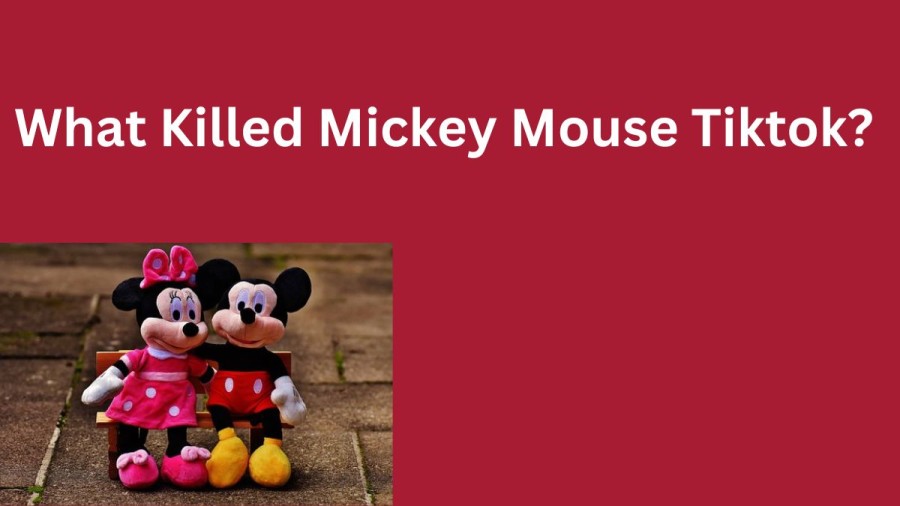Introduction
Mickey Mouse, the beloved animated character created by Walt Disney and Ub Iwerks, has been an enduring symbol of entertainment and childhood joy since his inception in 1928. Over the decades, he has evolved from a simple black-and-white cartoon character into a global cultural phenomenon. However, the question of what “killed” Mickey Mouse isn’t about his literal demise but rather refers to the changing dynamics of pop culture, entertainment preferences, and the challenges faced by any long-running franchise.
The Evolution of Mickey Mouse
Mickey Mouse made his first appearance in the animated short film “Steamboat Willie” in 1928. He quickly became the flagship character for Walt Disney’s burgeoning entertainment empire. Throughout the following decades, Mickey gained widespread popularity through animated shorts, comic strips, merchandise, and theme park attractions. He became a symbol of innocence, joy, and family-friendly entertainment, earning a special place in the hearts of both children and adults.
Challenges and Changes
As the decades rolled on, the entertainment landscape evolved, and Mickey Mouse faced several challenges:

- Changing Audiences: New generations of viewers emerged with changing tastes and preferences. The character, who once represented cutting-edge animation, had to compete with more sophisticated and complex narratives in film and television.
- Nostalgia vs. Innovation: Striking a balance between preserving the character’s nostalgic appeal and introducing innovative storytelling became increasingly difficult. Traditional 2D animation gave way to computer-generated animation, and Mickey’s classic antics sometimes clashed with modern storytelling sensibilities.
- Competition: The rise of other entertainment mediums, such as video games and digital platforms, meant that Mickey Mouse was no longer the sole source of entertainment for children and families.
- Cultural Sensitivity: Some of Mickey’s earlier content featured elements that would be considered culturally insensitive by today’s standards. This forced Disney to navigate the fine line between preserving history and avoiding offense.
- Saturation: Over the years, Mickey Mouse’s image was used extensively in merchandising, diluting his exclusivity and potentially reducing his impact.
The Concept of “Killing” Mickey Mouse
The idea that something has “killed” Mickey Mouse is more about the changing dynamics of pop culture and entertainment rather than a literal demise. As audiences diversified, entertainment became more fragmented, and the challenges mentioned above emerged, the once-universal appeal of Mickey Mouse began to shift.

Adaptation and Reinvention
To stay relevant, Disney undertook various measures to adapt Mickey Mouse for modern audiences:
- New Storytelling Approaches: Mickey starred in new TV series that gave him updated adventures while retaining his core characteristics. Shows like “Mickey Mouse Clubhouse” and “Mickey Mouse Shorts” aimed to engage contemporary viewers.
- Theme Park Presence: Disney’s theme parks introduced new attractions and experiences to rekindle interest in the character.
- Mickey’s 90th Anniversary: Disney celebrated Mickey’s 90th anniversary with events, merchandise, and new content, reminding audiences of his legacy.
- Reviving Classic Shorts: The “Get a Horse!” short combined classic and modern animation, bridging the gap between eras.
- Addressing Cultural Sensitivity: Disney acknowledged and addressed the issues of cultural insensitivity, making efforts to learn from past mistakes.
Conclusion
Mickey Mouse, an iconic character with an unparalleled legacy, is not a victim of any one thing that “killed” him. Instead, he is a reflection of the complexities of maintaining relevance in an ever-changing entertainment landscape. While he may have faced challenges due to shifting audience preferences and evolving storytelling, Disney’s efforts to adapt, reinvent, and celebrate the character’s history have allowed Mickey Mouse to persist as a beloved symbol of imagination, joy, and the magic of storytelling. As long as Disney continues to navigate the balance between nostalgia and innovation, Mickey’s legacy will undoubtedly live on for generations to come.

